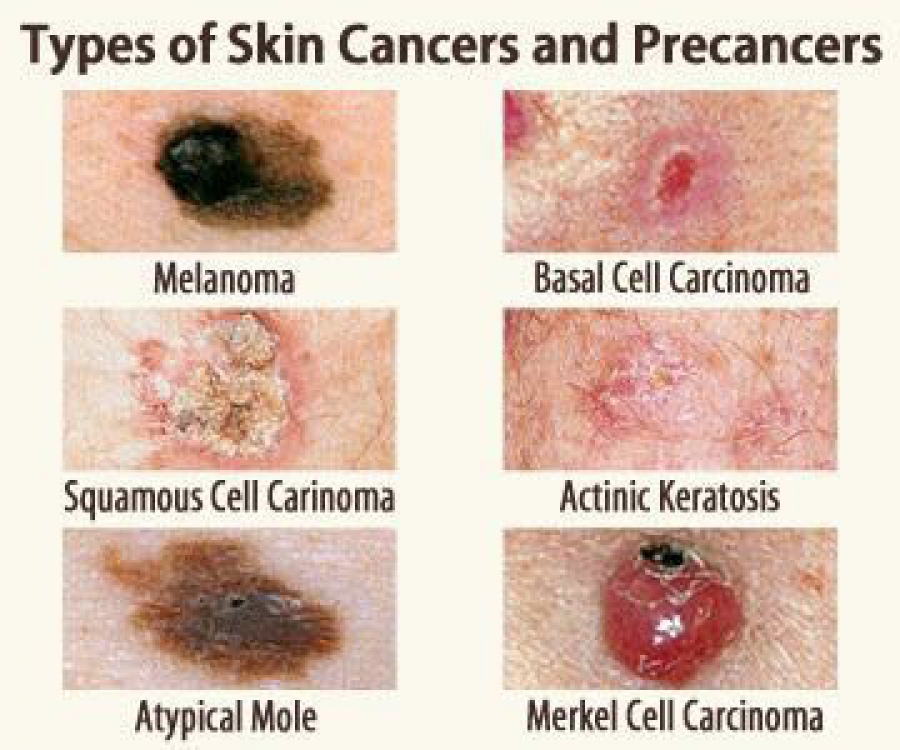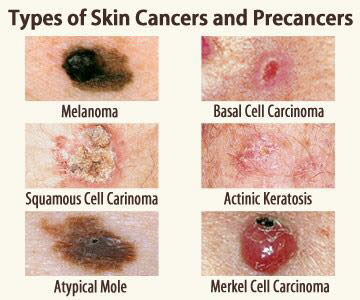Epidermal skin cancer originates from the superficial layers of the skin whilst malignant melanoma originates from the pigment producing cells called melanocytes.
Non-melanoma skin cancer includes solar keratosis (sun spots), squamous cell carcinoma & basal cell carcinoma.
Glandular cancers called lymphoma can also start in the skin.
How does skin cancer present itself?
Epidermal skin cancer can present as a scaly red spots, a lump that bleeds or as a non-healing ulcer or sore.
Melanoma skin cancer can arise within a preceding mole that has undergone a change in shape, colour or symptoms or as a sudden appearance of a darkly coloured or even a skin coloured lesion.
Lymphoma can present as dry patches, lumps or ulcers.
What causes skin cancer?
Ultraviolet radiation exposure from sunlight or tanning beds is the main cause of most skin cancer.
Fair skinned individuals with light hair and eyes, persons with multiple moles and people with a family history of skin cancer are at highest risk.
Other risk factors include patients that are on immunosuppressant medication e.g kidney transplant patients.
Skin cancer can also arise in a longstanding wound or ulcer that has not been adequately treated e.g venous leg ulcers.
Can skin cancer be treated?
If treated early, most types of skin cancer can be cured.
Treatment of skin cancer can be done surgically or in some cases various non-surgical methods are available that can avoid unnecessary scars e.g. the face
Untreated, melanoma can be fatal.
In advanced cases, chemotherapy & radiotherapy may be required.
How can you prevent skin cancer?
The regular use of high protection sunscreens have shown to reduce the likelihood of developing skin cancer.
Persons at risk need regular skin checks by a Dermatologist to identify and treat early or precancerous lesions.
If you have multiple moles, these need to be checked with a mole scanning device to detect any early and subtle changes not visible with the naked eye as this may suggest a risk of melanoma developing.
Click HERE for more comprehensive information



